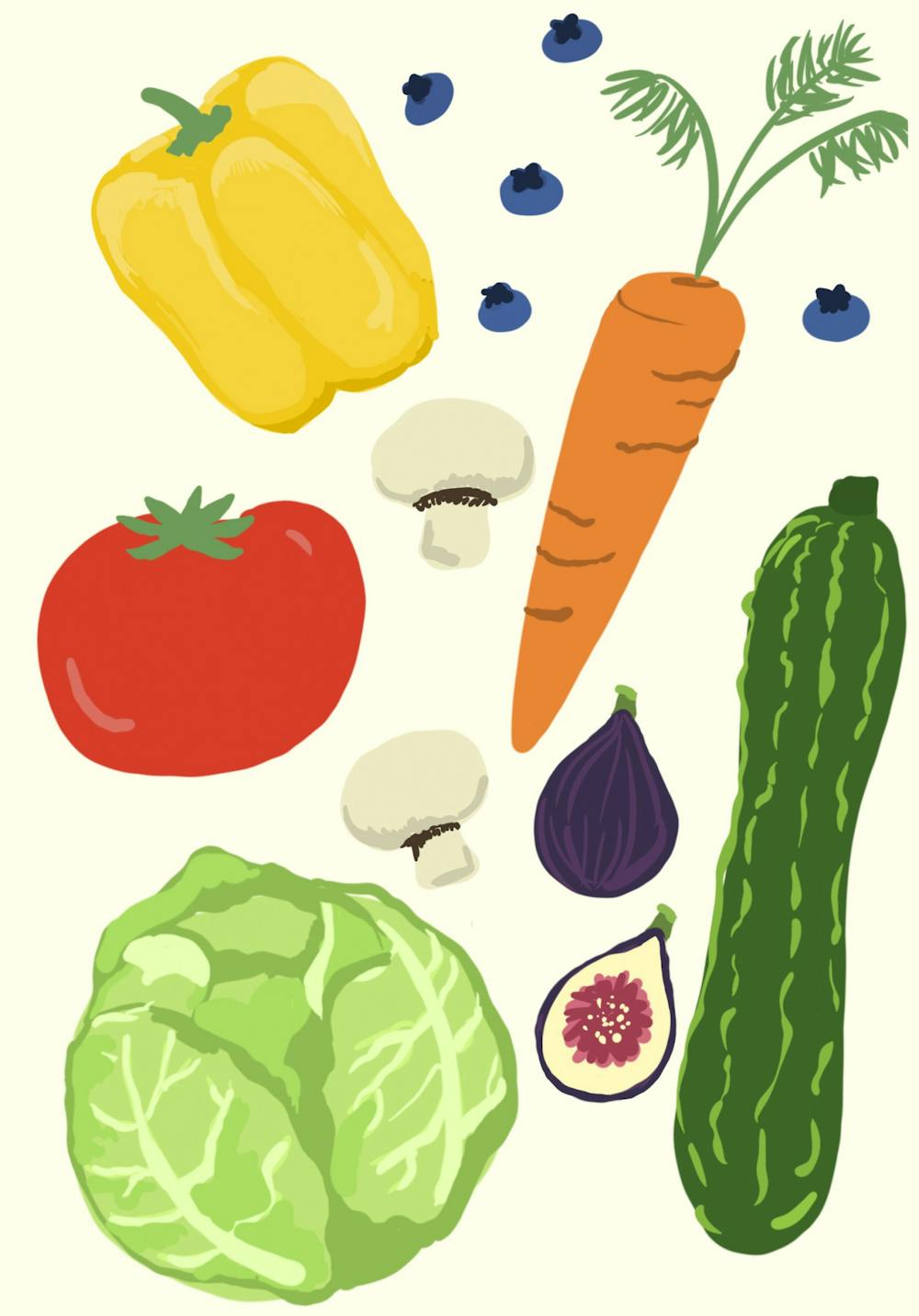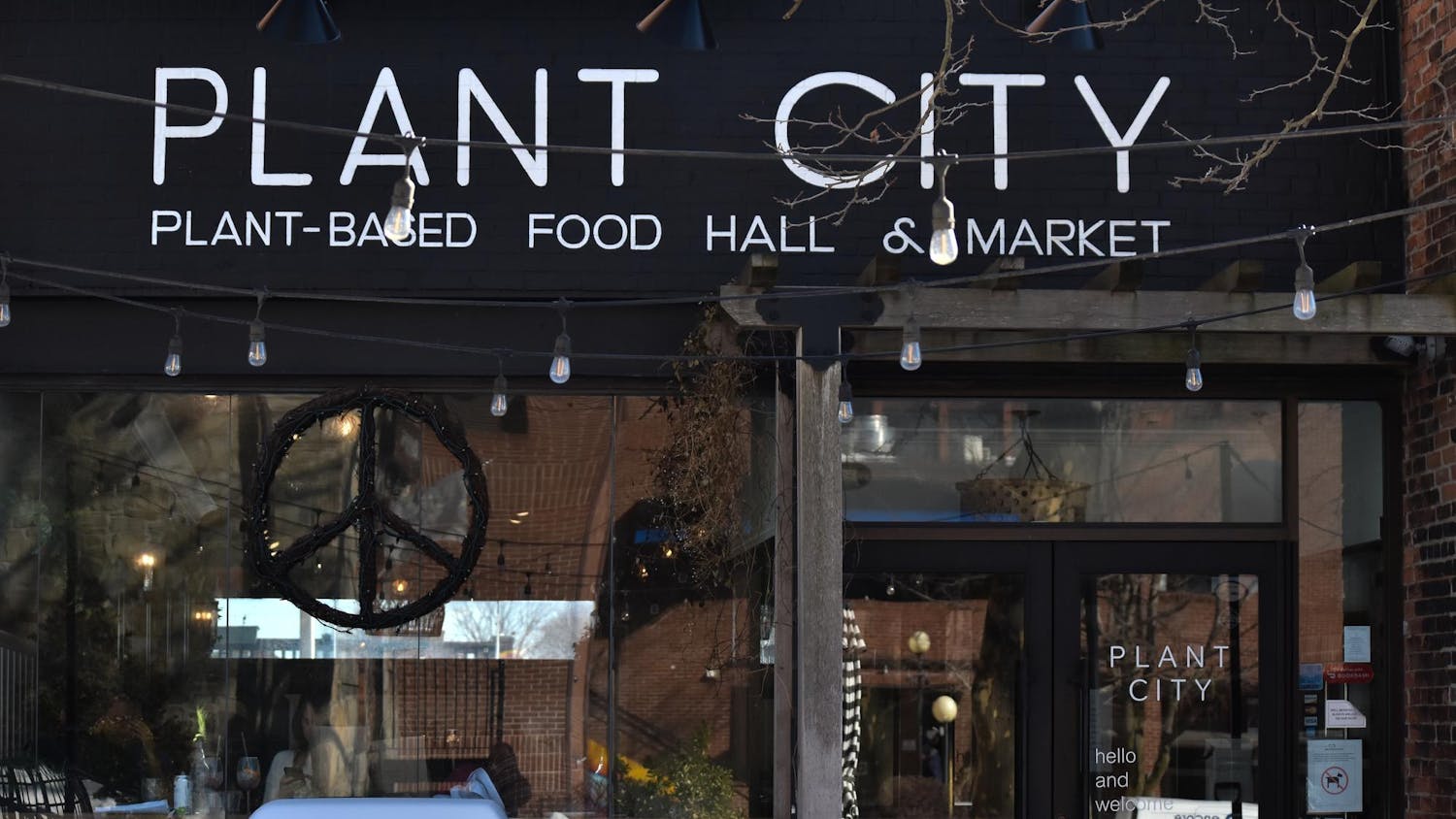Since fall 2020, the Graduate Student Council has provided free local produce to graduate students on a weekly basis in an effort to address food insecurity in Brown’s graduate student community.
Initially, the effort began as a collaboration with the Brown Market Shares Program, “a student-run, campus-based food distribution program connecting the College Hill community with regional producers,” according to the BMSP website. With BMSP, the GSC utilized local food subscription service Produce in the Park to offer students sustainable and local produce each week, GSC President Kathryn Thompson GS told The Herald.
When public health restrictions announced by the University in spring 2021 halted BMSP’s operations, GSC decided to create its own produce program. GSC continued to offer the graduate student community fresh food items into the fall 2021 semester while temporarily separated from BMSP. “It was a partnership between the Graduate School, the President’s Office, Dining Services and GSC to provide basically the same exact thing, just through another route,” Thompson explained.
Throughout the graduate student community, financial constraints exacerbated by the pandemic have made navigating life on College Hill more challenging. A 2021 Graduate Labor Organization survey found that since the start of the pandemic, 97% of Brown graduate student workers reported that they had increased expenses and 30% reported having to decide between spending money on food or healthcare or taking on debt to pay for necessities, Audrey Massmann, GLO organizing coordinator, wrote in an email to The Herald.
Rithika Ramamurthy GS, president of GLO, said that food insecurity among graduate students is a symptom of a larger issue of insufficient compensation for graduate workers.
“There are some real trade-offs when you don’t make a lot of money that affect grads all over Brown,” Ramamurthy said. “Unfortunately, it’s no longer tenable to think of graduate school as a place for you to live cheap and go a little hungry until you get that secure work that will save you.”
Associate Dean of Student Support Maria Suarez said that the stipend many graduate students receive is meant to help prevent food insecurity.
“Most doctoral students and some of the masters students receive stipends, and we try to make that a livable stipend where they should be able to meet their basic needs,” Suarez said.
Suarez also said that in addition to stipends and the sponsored produce program, the University supports students who reach out about emergency situations causing food insecurity through UFunds, interest-free loans and free meal credits.
The University and GLO reached a tentative agreement April 29 on a pay raise for graduate student workers, The Herald previously reported. Terms of the agreement include a 2.5 percent raise to the Academic Year Base Stipend — the minimum stipend paid to graduate students during the academic year under the terms of the University’s contract with GLO — and a one-time $750 payment to graduate students to cover pandemic-related costs.
With health restrictions loosened on campus relative to prior semesters, GSC is again partnering with Brown Market Shares to provide produce during the fall 2021 semester. Currently, GSC is funding subscriptions for 100 graduate students to participate in the program on a first come, first serve basis, Thompson added. One market share costs $17 per person per week.
Joe Colleyshaw GS, GSC treasurer, said that GSC voted to continue funding the program this fall by drawing from its savings, which currently total around $190,000. The projected cost to GSC of running the program this fall is $5,500.
Both GSC and the Graduate School will continue to fund the program this fall, with each contributing roughly half of the funding to the program collectively, and the Office of the President supplying the rest, Colleyshaw explained. According to Colleyshaw, GSC funding for the program comes from students’ semesterly recreation fees, which are $32.50 per student.
Colleyshaw said that the lack of in-person events over the past year freed up money in the GSC budget for the produce program, but returning to regular programming poses a return to previous financial constraints.
“We have got to think about in-person events, which takes up a lot of the budget,” he said. With an increased number of students entering their study at the University this semester following admissions deferrals related to the COVID-19 pandemic, “we’ve had probably about another or two or three hundred people coming in this year that we’ve got to do programming for.”
Thompson said that food insecurity and accessibility to produce is an issue among members of the graduate student community, and a lack of healthy food puts food insecure graduate students further at risk.
“The emphasis on fresh produce is because, when it comes to a lot of financial hardships, especially introduced by the COVID pandemic, fresh produce is usually one of the first things to go,” Thompson said. “It’s usually more perishable and expensive, especially if you live on College Hill around some of the more expensive grocery stores.”
Thompson said that GSC hopes to make the program more sustainable by finding new funding sources by, for example, increasing recreation fees by one or two dollars, a measure that GSC would have to vote on.
More immediately, Thompson said that GSC hopes to expand the number of graduate students it can include in the program this semester. “We’re hoping to obtain just (a little more funding) from the administration, whether that’s the Graduate School, the provost office or the president’s office, to support the remaining students,” she said. “The remaining students will be supported. We just (need to) figure out where those funds are coming from.”
Beyond the produce program, GSC is looking to implement preventative measures against food insecurity in the future, Thompson said.
“We have a lot of long-term goals to address food insecurity within the graduate population, whether that’s our own pantry or our own mini accessible grocery store for graduate and undergraduate students,” Thompson said. “We’re also looking at graduate student meal plans, because right now the current meal plans that are accessible to graduate students just aren’t affordable.”
Suarez said that the University will continue to fund the produce program as needed but is also looking for different solutions.
“We want our students to know that there are resources, and we need them to partner with us and let us know what their needs are,” Suarez said. “The Graduate School and the University as a whole are committed to finding a more sustainable long-term solution.”
Caleb Lazar was the senior editor of data desk for The Brown Daily Herald's 133rd Editorial Board.





